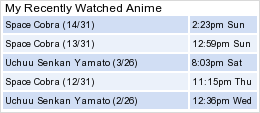What anime are you watching?
[font="Trebuchet MS"][SIZE="4"][color="RoyalBlue"]"His and Her Circumstances" Episode 10 "Everything Starts Now".
I'm currently reviewing this one for my blog. It's a bit of a refreshing break from watching "Evangelion" related stuff for all of November, even though they were created by the same person and the same studio. I love the animation style in this episode. It changes, and while I'm normally not a fan of that, for this episode, it works for the various situations.
"Kimi to Boku" Episode 9 "Naked King"
I'm just watching this one for the heck of it. I'm liking the slow pace of this one. It reminds me so much of a boys version of "Lucky Star", but it has it's own vibe to it. It's a cool series that I think I'll follow up with to see where it goes.
[/color][/SIZE][/font]
I'm currently reviewing this one for my blog. It's a bit of a refreshing break from watching "Evangelion" related stuff for all of November, even though they were created by the same person and the same studio. I love the animation style in this episode. It changes, and while I'm normally not a fan of that, for this episode, it works for the various situations.
"Kimi to Boku" Episode 9 "Naked King"
I'm just watching this one for the heck of it. I'm liking the slow pace of this one. It reminds me so much of a boys version of "Lucky Star", but it has it's own vibe to it. It's a cool series that I think I'll follow up with to see where it goes.
[/color][/SIZE][/font]
Joshua: Hebrew -The LORD is Salvation
Check out my new anime review blog, "The Cajun Samurai"
http://thecajunsamurai.wordpress.com/
" wrote:RustyClaymore 11:27 - Ah yes, Socks is the single raindrop responsible for the flood. XD
Check out my new anime review blog, "The Cajun Samurai"
http://thecajunsamurai.wordpress.com/
-

KhakiBlueSocks - Posts: 2675
- Joined: Sun Mar 13, 2005 8:32 pm
- Location: Louisiana
So I realized I hadn't written about Giant Robo yet. There's a lot of stuff I really like about it. It's got a fantastic sense of style and I don't mean the art. Maybe it's more like flair? It's kinda like how Star Driver has its own unique air to it. Another great thing is the all of the fights and the crazy powers that everyone has. Very cool. The story was intriguing as well.
Where it doesn't do it for me is in the characters. I understand that it's not the beginning of the story and I think this is exactly what hurts it. Things are happening but I don't feel like there's enough context for me to understand the characters, especially since there are so many of them. The end result is that I think that it's super cool, but it doesn't particularly resonate with me.
Hoshi o Ou Kodomo is a movie I should have seen about a week ago but didn't because of licensing issues, adding to the long list of grievances I have with copyright law. It's a Makoto Shinkai movie, so you know the deal: distance, clouds, and Tenmon music. Or at least, you think you do. Well, you've got clouds and Tenmon music down, at least.
In this movie, distance is a central theme, but it's not necessarily what you might expect and it's much, much more subtle than in his previous movies (which I know isn't particularly hard when you're comparing it to 5 cm/s). I think it's a sign of how different the movie is when I can say that there are many elements that surprised me, so look forward to that.
Visually, Shinkai's got his clouds and skies down and probably takes the opportunity to go way more nuts than he could have in a more realistic work (not that that stopped him in 5 cm/s). The most obvious difference in the style is the Ghibli-esque style. It's easy to just say that you think it's Ghibli because it's a fantasy anime, but I really think the aesthetic of both the "real" world and the "fantasy" world are really similar to how Ghibli does it. I'm talking like the architecture and clothing and everyday implements. Even the character designs look more similar.
Something else in the visual and surprising department is the action. The action is excellent and there is a decent amount of it.
So yeah, this is a great movie. I'd place it below 5 cm/s (because that movie is still amazing) but above The Place Promised etc. and I'm even more mad that I didn't get to see it on the big screen.
Where it doesn't do it for me is in the characters. I understand that it's not the beginning of the story and I think this is exactly what hurts it. Things are happening but I don't feel like there's enough context for me to understand the characters, especially since there are so many of them. The end result is that I think that it's super cool, but it doesn't particularly resonate with me.
Hoshi o Ou Kodomo is a movie I should have seen about a week ago but didn't because of licensing issues, adding to the long list of grievances I have with copyright law. It's a Makoto Shinkai movie, so you know the deal: distance, clouds, and Tenmon music. Or at least, you think you do. Well, you've got clouds and Tenmon music down, at least.
In this movie, distance is a central theme, but it's not necessarily what you might expect and it's much, much more subtle than in his previous movies (which I know isn't particularly hard when you're comparing it to 5 cm/s). I think it's a sign of how different the movie is when I can say that there are many elements that surprised me, so look forward to that.
Visually, Shinkai's got his clouds and skies down and probably takes the opportunity to go way more nuts than he could have in a more realistic work (not that that stopped him in 5 cm/s). The most obvious difference in the style is the Ghibli-esque style. It's easy to just say that you think it's Ghibli because it's a fantasy anime, but I really think the aesthetic of both the "real" world and the "fantasy" world are really similar to how Ghibli does it. I'm talking like the architecture and clothing and everyday implements. Even the character designs look more similar.
Something else in the visual and surprising department is the action. The action is excellent and there is a decent amount of it.
So yeah, this is a great movie. I'd place it below 5 cm/s (because that movie is still amazing) but above The Place Promised etc. and I'm even more mad that I didn't get to see it on the big screen.
-

blkmage - Posts: 4529
- Joined: Mon May 03, 2004 5:40 pm
watched Castle of Cagliostro and finished Gunslinger Girl.
Now I'm going to torture myself even more this afternoon and start Gunslinger Girl Il Teatrino.
Now I'm going to torture myself even more this afternoon and start Gunslinger Girl Il Teatrino.
"Before I formed you in the womb I knew you, and before you were born I consecrated you. I appointed you to be a prophet of all nations."
--Jeremiah 1:5
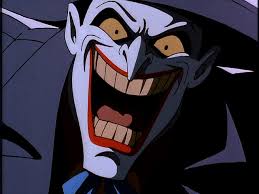
Hit me up on social media!
https://www.facebook.com/profile.php?id=100007205508246<--Facebook
I'm also on Amino as Radical Edward, and on Reddit as Rocklobster as well.
click here for my playlist!
my last fm profile!
--Jeremiah 1:5
Hit me up on social media!
https://www.facebook.com/profile.php?id=100007205508246<--Facebook
I'm also on Amino as Radical Edward, and on Reddit as Rocklobster as well.
click here for my playlist!
my last fm profile!
-

rocklobster - Posts: 8903
- Joined: Mon Dec 20, 2004 1:27 pm
- Location: Planet Claire
Kaiba
I love Masaki Yuasa's work.
Well, what I've seen of it, which is two short TV series. Still, both of these works (Kaiba and the more recent Tatami Galaxy) made such a huge impression on me that I believe Yuasa, who is not even fifty years old yet, will carry the torch of great anime directors sometime in the post-Miyazaki/Oshii future. He cut his teeth working on the animation for some of Japan's most beloved, long-running animated series such as Doremon, Crayon Shin-Chan and Chibi Maruko-Chan. In 1999 he directed the pilot of Vampire Kids, but his first big job was scriptwriting for Cat Soup. Directing the film Mind Game in 2004 likely gave him the platform to go on and direct some TV series.
But, let's talk about Kaiba.
For me, the first things that come to mind when thinking about Kaiba are "aesthetic" and "unsettling." Apart from the large eyes of some of the main cast, the characters look very un-anime, if you follow me. This was a feature present in the designs of Tatami Galaxy, but I find it even more pronounced in Kaiba. This is not a bad thing. Kaiba's character designs are extremely memorable and pleasant to behold. They all kind of look like children in a way, though most of them are not. A few of the side characters in particular are just so strange and unconventionally constructed that you can't help but remember them. The backgrounds seem like something out of either a children's American cartoon or some sort of storybook. Juxtapose all of this with the serious nature of the material covered in the story, and the whole package can be a bit jarring...in a good way. A way that makes you think.
As far as the "unsettling" bit goes, that feeling is a function of the world-building and the story itself (also, the story against the aesthetic backdrop, as mentioned above). I won't go into detailing the initial plot summary or setting up the world, as that's easily available to anyone. I will just say that in the world of Kaiba, memories are a commodity stored on physical media.
The way that Kaiba plays it, however, makes what is stored on the physical media seem like more than merely memories. Kaiba treats it as if it were memory plus something else, that something else being perhaps the self or the soul. Memory chips are treated reverently, more like persons than like film reels. Is this because they are actually chips with souls on them or is this because of the potential inherent in the chips to "create" a specific person by joining memory and body? I tend to think the former, but that is neither here nor there.
The point is that Kaiba uses its first half to pose questions like these. The protagonist travels the galaxy, encountering various situations that bring up philosophical questions concerning the nature of mind, mind-body dualism, person-hood, etc. It is these scenarios and the way they often played out that disturbed me. Again, though, I think it is a good sort of disturbing. Kaiba is the best kind of science fiction in that, through fantastical stories, it asks questions of vital social importance. I happen to think that the definition of person-hood as well as the hypothetical situation of how we would treat our bodies or minds (given both our present social consciousness as well as the actuality of Kaiba-esque technology) are extremely important questions about Western society.
While Kaiba's first half is an episodic, world-building, food-for-thought exercise, the second half of the show is a serialized tale of political intrigue, coming to grips with personal demons, the apocalypse and much more. The pace increases and the series becomes more dramatic. I personally liked the ending, but there are many who don't care for it. It's controversial in that it isn't big on exposition and is very open to interpretation.
Kaiba: for thoughtful anime fans desiring something off the beaten path.
I love Masaki Yuasa's work.
Well, what I've seen of it, which is two short TV series. Still, both of these works (Kaiba and the more recent Tatami Galaxy) made such a huge impression on me that I believe Yuasa, who is not even fifty years old yet, will carry the torch of great anime directors sometime in the post-Miyazaki/Oshii future. He cut his teeth working on the animation for some of Japan's most beloved, long-running animated series such as Doremon, Crayon Shin-Chan and Chibi Maruko-Chan. In 1999 he directed the pilot of Vampire Kids, but his first big job was scriptwriting for Cat Soup. Directing the film Mind Game in 2004 likely gave him the platform to go on and direct some TV series.
But, let's talk about Kaiba.
For me, the first things that come to mind when thinking about Kaiba are "aesthetic" and "unsettling." Apart from the large eyes of some of the main cast, the characters look very un-anime, if you follow me. This was a feature present in the designs of Tatami Galaxy, but I find it even more pronounced in Kaiba. This is not a bad thing. Kaiba's character designs are extremely memorable and pleasant to behold. They all kind of look like children in a way, though most of them are not. A few of the side characters in particular are just so strange and unconventionally constructed that you can't help but remember them. The backgrounds seem like something out of either a children's American cartoon or some sort of storybook. Juxtapose all of this with the serious nature of the material covered in the story, and the whole package can be a bit jarring...in a good way. A way that makes you think.
As far as the "unsettling" bit goes, that feeling is a function of the world-building and the story itself (also, the story against the aesthetic backdrop, as mentioned above). I won't go into detailing the initial plot summary or setting up the world, as that's easily available to anyone. I will just say that in the world of Kaiba, memories are a commodity stored on physical media.
The way that Kaiba plays it, however, makes what is stored on the physical media seem like more than merely memories. Kaiba treats it as if it were memory plus something else, that something else being perhaps the self or the soul. Memory chips are treated reverently, more like persons than like film reels. Is this because they are actually chips with souls on them or is this because of the potential inherent in the chips to "create" a specific person by joining memory and body? I tend to think the former, but that is neither here nor there.
The point is that Kaiba uses its first half to pose questions like these. The protagonist travels the galaxy, encountering various situations that bring up philosophical questions concerning the nature of mind, mind-body dualism, person-hood, etc. It is these scenarios and the way they often played out that disturbed me. Again, though, I think it is a good sort of disturbing. Kaiba is the best kind of science fiction in that, through fantastical stories, it asks questions of vital social importance. I happen to think that the definition of person-hood as well as the hypothetical situation of how we would treat our bodies or minds (given both our present social consciousness as well as the actuality of Kaiba-esque technology) are extremely important questions about Western society.
While Kaiba's first half is an episodic, world-building, food-for-thought exercise, the second half of the show is a serialized tale of political intrigue, coming to grips with personal demons, the apocalypse and much more. The pace increases and the series becomes more dramatic. I personally liked the ending, but there are many who don't care for it. It's controversial in that it isn't big on exposition and is very open to interpretation.
Kaiba: for thoughtful anime fans desiring something off the beaten path.
-

TheSubtleDoctor - Posts: 1838
- Joined: Mon Dec 14, 2009 7:48 am
- Location: Region 1
Mawaru Penguindrum, Episode 21.
(Full-spoiler) thoughts in the usual spot.
(Full-spoiler) thoughts in the usual spot.

Saved by grace.

MAL (Anime) - MAL (Manga) - MAL (Profile)
(^ And if you also have a MAL account, please feel free to send me a friend request there! )
)

MAL (Anime) - MAL (Manga) - MAL (Profile)
(^ And if you also have a MAL account, please feel free to send me a friend request there!
 )
)-

MangaRocks! - Posts: 1264
- Joined: Wed Jan 26, 2011 10:10 am
- Location: A room full of wonderful books... :)
I recently finished both seasons of The World God Only Knows and am now hooked on Mirai Nikki. Amazing show so far.
-

gn6me - Posts: 14
- Joined: Tue Apr 26, 2011 2:33 pm
- Location: in Denial
I know some are dissapoint because Kemonozume and Mind Game don't really live up to Kaiba and The Tatami Galaxy, but like Makoto Shinkai, Yuasa has shown incredible improvement since his debut with Mind Game, so I definitely hope he gets another series in the future. I'd still say Mind Game and Kemonozume are still worth watching, though they are considerably weaker than both Kaiba and The Tatami Galaxy, especially Mind Game.
-

Mr. Hat'n'Clogs - Posts: 2364
- Joined: Sun Apr 19, 2009 2:16 pm
- Location: The Roaring Song-City
D.Gray-man episode 26 - So now I know exactly what the Millennium Earl's plan is!
You can find out things about the past that you never knew. And from what you've learned, you may see some things differently in the present. You're the one that changes. Not the past.
- Ellone, Final Fantasy VIII

"There's a difference between maliciously offending somebody - on purpose - and somebody being offended by...truth. If you're offended by the truth, that's your problem. I have no obligation to not offend you if I'm speaking the truth. The truth is supposed to offend you; that's how you know you don't got it."
- Brad Stine
- Ellone, Final Fantasy VIII

"There's a difference between maliciously offending somebody - on purpose - and somebody being offended by...truth. If you're offended by the truth, that's your problem. I have no obligation to not offend you if I'm speaking the truth. The truth is supposed to offend you; that's how you know you don't got it."
- Brad Stine
-
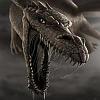
the_wolfs_howl - Posts: 3273
- Joined: Thu Mar 01, 2007 11:26 pm
- Location: Not Paradise...yet
C3 episode 9
Mirai Nikki episode 8
Haganai episode 6
Mirai Nikki episode 8
Haganai episode 6
@)}~`,~ Carry This Rose In Your Sig, As Thanks, To All
The CAA Moderators.
"YEAH TOAST! TOCAA!"
The CAA Moderators.
"YEAH TOAST! TOCAA!"
-

KeybladeWarrior - Posts: 1176
- Joined: Sun Nov 12, 2006 7:04 pm
Finally saw My Last Day. If I wanted to watch Passion of the Christ, I would. This feels like a similarly exploitative rehashing of that torture porn, is nothing that I don't already know, and imo misses the point of being Christian. Jesus is not life insurance. Decently pretty visuals do not make up for the mess of the message and unoriginality.
EDIT: Marathoned the first 9 eps of Gunslinger Girl because it was too cold and wet to go out (winter rain- blegh!). Wow. This is one heckuva series.
EDIT: Marathoned the first 9 eps of Gunslinger Girl because it was too cold and wet to go out (winter rain- blegh!). Wow. This is one heckuva series.
-
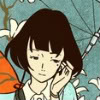
Atria35 - Posts: 6295
- Joined: Sat Mar 20, 2010 7:30 am
Watched a few episodes of Xenosaga The Animation and a few of Hetalia Axis Powers. I'm not sure if I'll finish Xenosaga, but I'm pretty sure I'll be finishing Hetalia!
My Websites:
http://www.flactem.com/
My Final Fantasy VII Walkthrough (FF7 Walkthrough)
My Final Fantasy VIII Walkthrough (FF8 Walkthrough)
My Final Fantasy IX Walkthrough (FF9 Walkthrough)
My Final Fantasy X Walkthrough (FFX Walkthrough)
Join MOES today - Plant a SIG for your tomorrow!
Follow me on Twitter! http://twitter.com/caamithrandir
http://www.flactem.com/
My Final Fantasy VII Walkthrough (FF7 Walkthrough)
My Final Fantasy VIII Walkthrough (FF8 Walkthrough)
My Final Fantasy IX Walkthrough (FF9 Walkthrough)
My Final Fantasy X Walkthrough (FFX Walkthrough)
Join MOES today - Plant a SIG for your tomorrow!
Follow me on Twitter! http://twitter.com/caamithrandir
-

Mithrandir - Posts: 11071
- Joined: Fri Jun 27, 2003 12:00 pm
- Location: You will be baked. And then there will be cake.
Hourou Musuko 1- It really does drop you right into the thick of things! It's not that bad as long as I'm paying attention, but I think at a later date I'll want to check out the manga and see The Beginning. I'm also totally hooked on the ED.
-

Atria35 - Posts: 6295
- Joined: Sat Mar 20, 2010 7:30 am
Back to Fam the Silver Wing. ep 8 just came out today on Funimation's website.
http://www.funimation.com/lastexile-fam-the-silver-wing
Watched the last episode of Martian Successor Nadesico last week.
http://www.funimation.com/lastexile-fam-the-silver-wing
Watched the last episode of Martian Successor Nadesico last week.
- God is always with us, especially when we feel most alone.
http://ablipintime.deviantart.com/
Htom Sirveaux (post: 1435089) - "We should all start speaking telepathically."
Midori (post: 1457302) "Sometimes, if I try hard, I can speak in English."
(post: 1481465) "Overthinking is an art."
Goldenspines - "Fighting the bad guys and rescuing princesses from trolls and all that. "
http://ablipintime.deviantart.com/
Htom Sirveaux (post: 1435089) - "We should all start speaking telepathically."
Midori (post: 1457302) "Sometimes, if I try hard, I can speak in English."
(post: 1481465) "Overthinking is an art."
Goldenspines - "Fighting the bad guys and rescuing princesses from trolls and all that. "
-
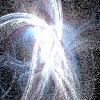
ABlipinTime - Posts: 1006
- Joined: Sun Aug 22, 2010 1:19 am
Dat ending, eh?ABlipinTime (post: 1519663) wrote:Watched the last episode of Martian Successor Nadesico last week.
-

TheSubtleDoctor - Posts: 1838
- Joined: Mon Dec 14, 2009 7:48 am
- Location: Region 1
Just finished Rurouni Kenshin, and Welcome to the NHK. NHK was a very good show about Hikkikomori and relationships. It had a good blend of humor and serious drama. Just be warned you probably wouldn't want to watch it if fan service makes you uncomfortable although those scenes are mostly to show that the main characters are socially awkward.
-

bakura91 - Posts: 202
- Joined: Mon Apr 18, 2011 5:43 pm
- Location: NC
-

A_Yellow_Dress - Posts: 293
- Joined: Wed Aug 31, 2011 9:21 am
GaoGaiGar - up to ep. 10.
Just when it seemed like things were slowing down a bit, getting into a complacent rhythm, an episode like the undersea one comes along. That one was pretty hardcore, and if it's any indication for where this show is going, then getting through all this setup for the real show (as good as it's been so far) will be worth it all.
Just when it seemed like things were slowing down a bit, getting into a complacent rhythm, an episode like the undersea one comes along. That one was pretty hardcore, and if it's any indication for where this show is going, then getting through all this setup for the real show (as good as it's been so far) will be worth it all.
We are loved even though we suck.
Psalms 37:37 (NHEB)
Mark the perfect man, and see the upright, for there is a future for the man of peace.
Psalms 37:37 (NHEB)
Mark the perfect man, and see the upright, for there is a future for the man of peace.
-

Davidizer13 - Posts: 1080
- Joined: Fri Jun 26, 2009 9:27 am
- Location: VIOLENT CITY
Expect a bit more of the "peaks and valleys" experience (episode 17 being a high peak) until episode 25. Once the second half gets going, each episode raises the bar in terms of quality, scale and intensity.Davidizer13 (post: 1519849) wrote:GaoGaiGar - up to ep. 10.
Just when it seemed like things were slowing down a bit, getting into a complacent rhythm, an episode like the undersea one comes along. That one was pretty hardcore, and if it's any indication for where this show is going, then getting through all this setup for the real show (as good as it's been so far) will be worth it all.
-

TheSubtleDoctor - Posts: 1838
- Joined: Mon Dec 14, 2009 7:48 am
- Location: Region 1
Davidizer13 (post: 1519849) wrote:GaoGaiGar - up to ep. 10.
Wow, you made it that far. I couldn't stop laughing at the silliness of ep 1. Props to you, sir.
- God is always with us, especially when we feel most alone.
http://ablipintime.deviantart.com/
Htom Sirveaux (post: 1435089) - "We should all start speaking telepathically."
Midori (post: 1457302) "Sometimes, if I try hard, I can speak in English."
(post: 1481465) "Overthinking is an art."
Goldenspines - "Fighting the bad guys and rescuing princesses from trolls and all that. "
http://ablipintime.deviantart.com/
Htom Sirveaux (post: 1435089) - "We should all start speaking telepathically."
Midori (post: 1457302) "Sometimes, if I try hard, I can speak in English."
(post: 1481465) "Overthinking is an art."
Goldenspines - "Fighting the bad guys and rescuing princesses from trolls and all that. "
-

ABlipinTime - Posts: 1006
- Joined: Sun Aug 22, 2010 1:19 am
TheSubtleDoctor (post: 1519866) wrote:Expect a bit more of the "peaks and valleys" experience (episode 17 being a high peak) until episode 25. Once the second half gets going, each episode raises the bar in terms of quality, scale and intensity.
Sweet]Wow, you made it that far. I couldn't stop laughing at the silliness of ep 1. Props to you, sir.[/QUOTE]
No way, a show about fighting robots, designed to sell toys to impressionable kids, is silly? That's completely unheard of! </sarcasm>
But yeah, you're right, GaoGaiGar is going to test your patience for super robot monster-of-the-week stuff: either you've got enough, or you don't. Sure, it's silly, but it grows on you after a few episodes of it; that, or we're watching it for different reasons. Something like that.
(P.S.: I tried Nadesico and couldn't get into it because I thought it was silly; if you try GaoGaiGar again, I'll give it another go!)
blkmage wrote:{on Giant Robo}
Where it doesn't do it for me is in the characters. I understand that it's not the beginning of the story and I think this is exactly what hurts it. Things are happening but I don't feel like there's enough context for me to understand the characters, especially since there are so many of them. The end result is that I think that it's super cool, but it doesn't particularly resonate with me.
I agree with you on all that: the biggest issue Giant Robo has is that it tries to do way too much, both the show itself and all the plans they had for it. I mean, seriously, they were trying to have six more of those series? (Not that it wouldn't have been totally awesome if they had done that, but...) It certainly didn't help that they started with the sixth, and it assumes that you know who all these people are as it throws them at you.
It's still super cool, though.
We are loved even though we suck.
Psalms 37:37 (NHEB)
Mark the perfect man, and see the upright, for there is a future for the man of peace.
Psalms 37:37 (NHEB)
Mark the perfect man, and see the upright, for there is a future for the man of peace.
-

Davidizer13 - Posts: 1080
- Joined: Fri Jun 26, 2009 9:27 am
- Location: VIOLENT CITY
Finished Hourou Musuko- This definitely touches on a lot of topics concerning gender identity. A lot of gender is social expectations, and the bit about how acceptable it is for girls to cross-dress as opposed to guys really hits some things that I've seen that I've noticed in society, and even mentioned on here when talking about cosplaying. But I don't think it really went in-depth on any of these things, which is a shame.
Also watched all of Project Blue Earth SOS- this has all that 50's sci-fi goodness that would make a terrific anime if it were a longer series. As it was, there was no reason to care about the characters or what was happening during the first three episodes. Some moments that were obviously meant to be moving... weren't. And everything was just rushed.
Also watched all of Project Blue Earth SOS- this has all that 50's sci-fi goodness that would make a terrific anime if it were a longer series. As it was, there was no reason to care about the characters or what was happening during the first three episodes. Some moments that were obviously meant to be moving... weren't. And everything was just rushed.
-

Atria35 - Posts: 6295
- Joined: Sat Mar 20, 2010 7:30 am
Recently have watched:
Sket Dance episode 33
Morita-san wa Mukuchi episode 22
Sket Dance episode 33
Morita-san wa Mukuchi episode 22
@)}~`,~ Carry This Rose In Your Sig, As Thanks, To All
The CAA Moderators.
"YEAH TOAST! TOCAA!"
The CAA Moderators.
"YEAH TOAST! TOCAA!"
-

KeybladeWarrior - Posts: 1176
- Joined: Sun Nov 12, 2006 7:04 pm
Ive been watching DBZ Kai On Nicktoons I'm so extremley familer with the DBZ Sagas but they never get old for me. I have seen all of DBZ Via Toonami and in Elementary would re-read the manga volumes alot so I know it all by heart pretty much, although I haven't whatched any of GT since then.
-

bakura91 - Posts: 202
- Joined: Mon Apr 18, 2011 5:43 pm
- Location: NC
D.Gray-man episode 27 - FINALLY!!! A flashback of Allen's experiences with General Cross!
You can find out things about the past that you never knew. And from what you've learned, you may see some things differently in the present. You're the one that changes. Not the past.
- Ellone, Final Fantasy VIII

"There's a difference between maliciously offending somebody - on purpose - and somebody being offended by...truth. If you're offended by the truth, that's your problem. I have no obligation to not offend you if I'm speaking the truth. The truth is supposed to offend you; that's how you know you don't got it."
- Brad Stine
- Ellone, Final Fantasy VIII

"There's a difference between maliciously offending somebody - on purpose - and somebody being offended by...truth. If you're offended by the truth, that's your problem. I have no obligation to not offend you if I'm speaking the truth. The truth is supposed to offend you; that's how you know you don't got it."
- Brad Stine
-

the_wolfs_howl - Posts: 3273
- Joined: Thu Mar 01, 2007 11:26 pm
- Location: Not Paradise...yet
I've seen episodes 1-4 of The Melancholy of Haruhi Suzumiya, as well as a few episodes of Haruhi-Chan.
"For what use is there in praying if you will only hear what you want to hear." - As I Lay Dying *The Sound Of Truth*
Let's make an AMV together!
Kokoro no Uta The thoughts of an aspiring mangaka (yeah...this is my blog >.>)
Ooh look! I have fanfiction! YAY!!!!!!!
http://www.fanfiction.net/~sevencandlesticks
If you like Tsubasa and Cardcaptors, then you might like what I've written (if I didn't slaughter the series... XD)
He heals the brokenhearted and binds up their wounds - Pslam 147:3
Let's make an AMV together!
Kokoro no Uta The thoughts of an aspiring mangaka (yeah...this is my blog >.>)
Ooh look! I have fanfiction! YAY!!!!!!!
http://www.fanfiction.net/~sevencandlesticks
If you like Tsubasa and Cardcaptors, then you might like what I've written (if I didn't slaughter the series... XD)
He heals the brokenhearted and binds up their wounds - Pslam 147:3
-

AnimeGirl - Posts: 1053
- Joined: Wed Nov 11, 2009 5:51 pm
- Location: California
Mawaru Penguindrum, episode 22.
And, as always, my (full-spoiler) thoughts are in the usual place.
And, as always, my (full-spoiler) thoughts are in the usual place.

Saved by grace.

MAL (Anime) - MAL (Manga) - MAL (Profile)
(^ And if you also have a MAL account, please feel free to send me a friend request there! )
)

MAL (Anime) - MAL (Manga) - MAL (Profile)
(^ And if you also have a MAL account, please feel free to send me a friend request there!
 )
)-

MangaRocks! - Posts: 1264
- Joined: Wed Jan 26, 2011 10:10 am
- Location: A room full of wonderful books... :)
restarting Beck so I can hear what the dub's like.
"Before I formed you in the womb I knew you, and before you were born I consecrated you. I appointed you to be a prophet of all nations."
--Jeremiah 1:5

Hit me up on social media!
https://www.facebook.com/profile.php?id=100007205508246<--Facebook
I'm also on Amino as Radical Edward, and on Reddit as Rocklobster as well.
click here for my playlist!
my last fm profile!
--Jeremiah 1:5
Hit me up on social media!
https://www.facebook.com/profile.php?id=100007205508246<--Facebook
I'm also on Amino as Radical Edward, and on Reddit as Rocklobster as well.
click here for my playlist!
my last fm profile!
-

rocklobster - Posts: 8903
- Joined: Mon Dec 20, 2004 1:27 pm
- Location: Planet Claire
Return to Anime and Anime Reviews
Who is online
Users browsing this forum: No registered users and 68 guests

